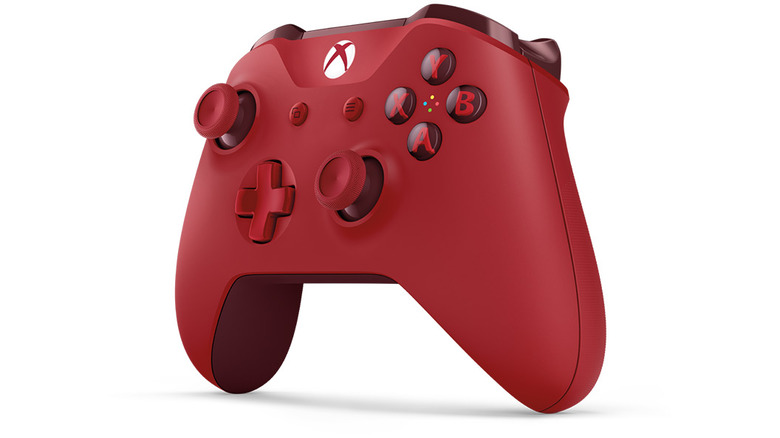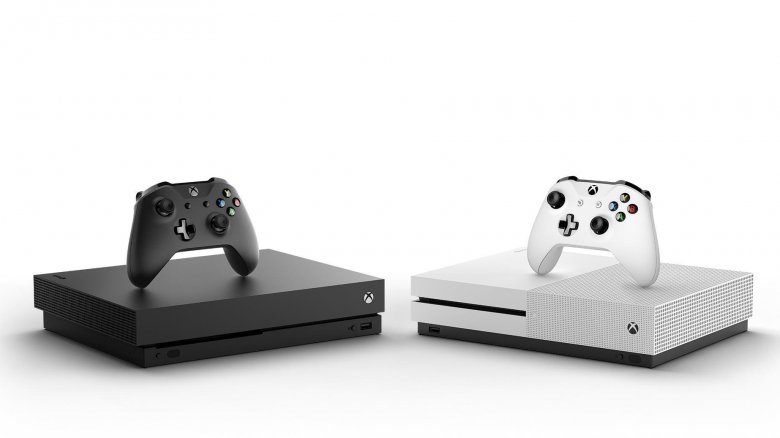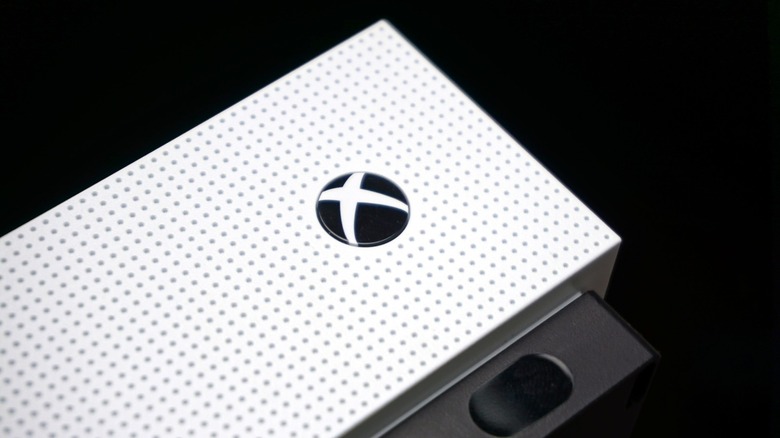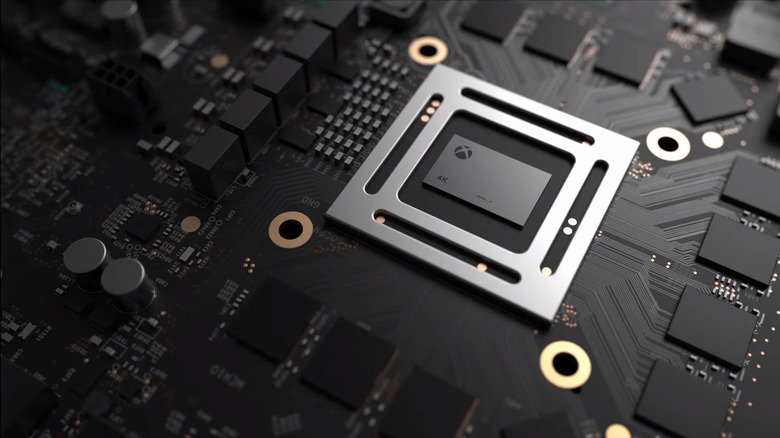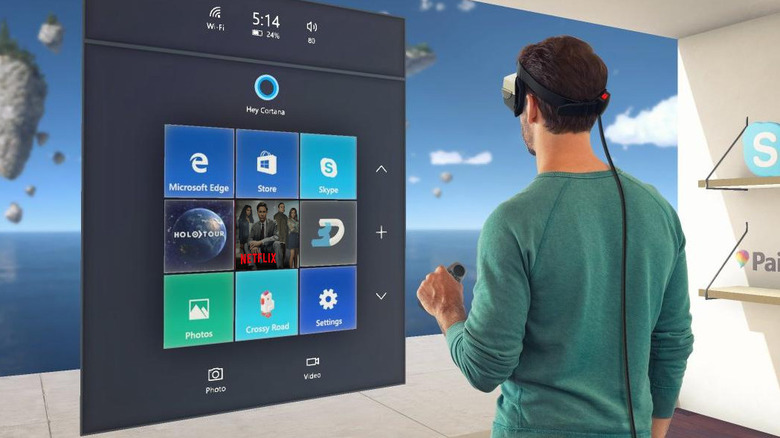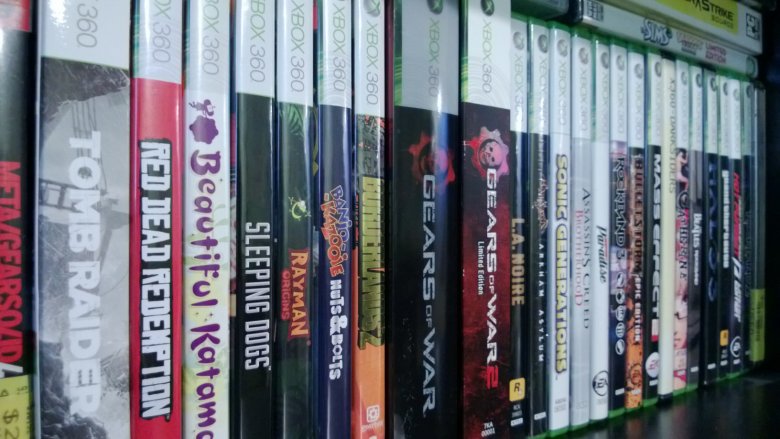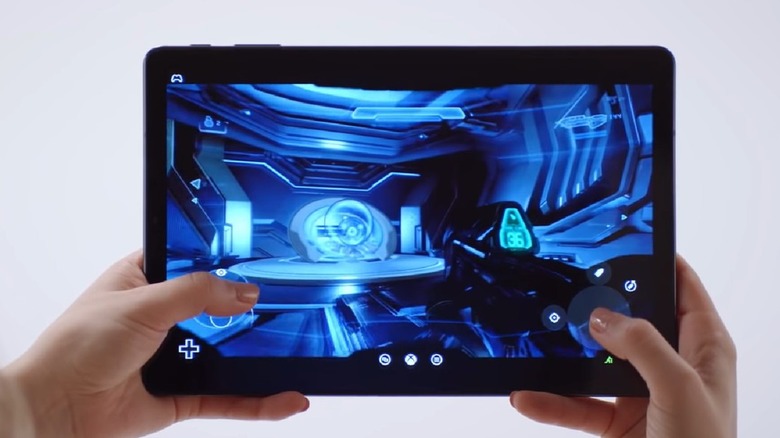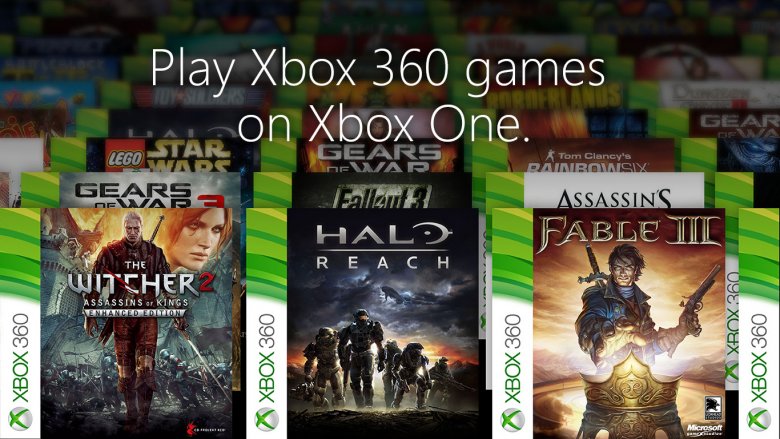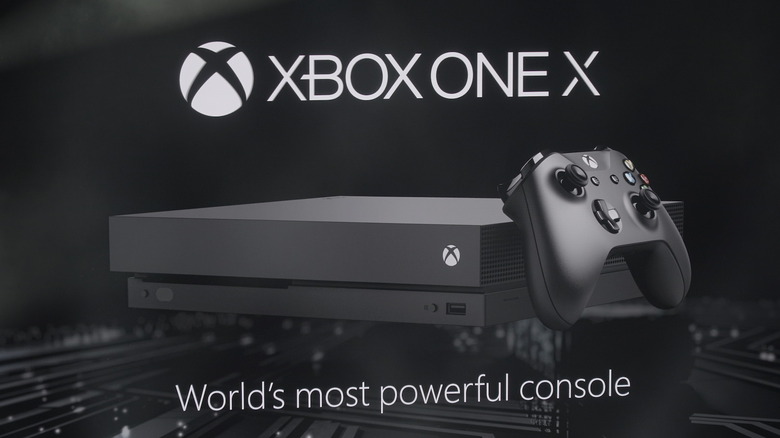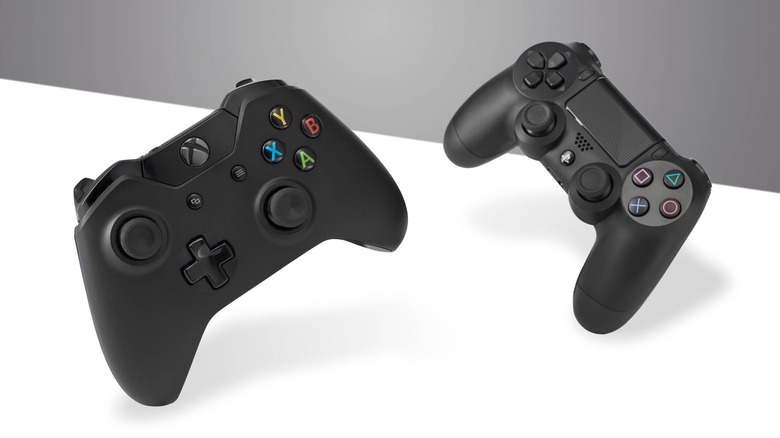Everything You Need To Know About The Xbox Scarlett
Through whispered secrets and leaked rumors, we know that there's a new war brewing on the horizon. The next generation of consoles, and the insanely gorgeous games they will support, are just around the corner. Though the industry has been tight-lipped on details, we have managed to scrounge up a few nuggets of information to get excited for. Microsoft is looking to paint the town red with Project Scarlett.
Project Scarlett is the promising codename of the next generation of Xbox, which promises to surpass the still impressive specs of the Xbox One and One S. Like we said, Phil Spencer and company are being infuriatingly cryptic about exactly what Scarlett entails, but 2019's E3 might yield some more verifiable, juicy details. Come on, Phil, we're clinging onto scraps here. An official announcement would be more than welcome while we wait for groundbreaking graphics and a whole new Xbox experience. For now, we wait, and for now here's some alleged details on the elusive Project Scarlett.
More than one console?
Firstly, Xbox is planning on spoiling us and leaving players with a tough decision: which console to buy? That's right, there are reportedly two consoles in the works. The Anaconda, its name seemingly taking a page from Razor's book, is exactly what one would expect from the next big thing in console gaming: fast, powerful, high-end specs that would impress even the pickiest of PC gamers. The Anaconda is meant to have a bite, effectively one-upping the Xbox One.
The Lockhart, hopefully not named after the Harry Potter character, won't be nearly as suped-up. More in line with the current specs of the Xbox One X, the Lockhart will serve as a casual gamer's luxury. It won't be cutting edge, but still sharp and able to support the newest games and the next-gen's focus on 4K gaming. Microsoft is acknowledging that not everyone is a hardcore gamer that needs to see their avatar's pores as they blast through thousands of enemies in a world that's more immersive than reality. Some people just want to play Skyrim while they get ready for the next Elder Scrolls.
Microsoft goes Maverick
And it's possible that there might be even more consoles in the works.
It is alleged that the next-gen of Xbox will be comprised of not one, not two, not even three, but four new consoles. Well, new-ish. It is said that a final, definitive version of the Xbox One S is in the works. This final edition to the One line is supposed to be cheaper than its predecessors and come equipped with a focus on streaming through Microsoft's Project xCloud.
Keeping tight budgets in mind, the Lockhart console would be much more friendly to consumer wallets than the no-holds-barred, high-end, PC-rivaling Anaconda model. Although the Anaconda is set to set the benchmark when it comes to console gaming, Microsoft is also allegedly planning a more revolutionary project alongside it. The Maverick is reportedly all about promoting and supporting xCloud. It would be a disc-drive-less stream machine, allowing players to stream their favorite games without waiting through the lengthy installation process.
Next-gen will be more like PC
Let's get technical. What does it mean when we say that the new Xbox will be bigger and badder than ever? It's all about whatever lays beneath the slick (or matte, we have no idea what the console will look like) surface of the shell. The key behind the power of the next-gen consoles is allegedly in the usage of discrete graphics chips.
Unsubstantiated, but nevertheless convincing-looking leaks suggest that rather than having the processor (CPU) and the graphics card (GPU) combined into a single chunk of silicon known as an Accelerated Processing Unit (APU), the new generation of consoles will take inspiration from the world of PCs and have the GPU separate. Supposedly, Scarlett would utilize "Arcturus 12 GPU featuring 64 'Arcturus Engines' and a total of 4,096 GPU cores" which, in the most simple of terms, doubles what the Xbox One X is currently powered by. This would be the first time that a console had a discrete graphics card, making the line between console and PC a little more blurry than before.
It would also make the Scarlett more expensive to produce than its predecessors, but we have no idea thus far just how much of a burden the next-gen will be on gamer's wallets.
VR isn't a priority
Imagine a future where the virtual world and reality are seamlessly combined. Many people have said that VR is the future of gaming. Now stop imagining it: in the case of the next generation of Xbox consoles, it might not be the future after all.
In an interview with GamesIndustry.biz, Microsoft's chief marketing officer for gaming Mike Nichols said that the company was focused on a gamer-centric future. "We want to reach gamers of all types. We want to reach gamers who are only on phones. We want to reach gamers who are only on PC, who are only on console, and mixes therein. And in order to do that, we need to make our content available across the relevant devices."
"Gamers of all types" doesn't necessarily include those that are hooked into VR headsets, however. According to Nichols, they are leaving the future of VR in the hands of the PC people, because Microsoft doesn't have plans for a VR console anytime soon.
"Our perspective on it has been and continues to be that the PC is probably the best platform for more immersive VR and MR. As an open platform, it just allows faster, more rapid iteration. There are plenty of companies investing in it in the hardware side and the content side, or some combination therein." He said, "But as it relates to Xbox, no. Our focus is primarily on experiences you would play on your TV, and ultimately we'd like to make those experiences more broadly."
Goodbye discs?
Once upon a time, you could pop a disc into your console of choice and play it instantly: no lengthy installation required. It was these idyllic times that gamers thought of when they rebelled against Microsoft back in 2013, after the company hinted at a digital-only future.
People weren't cool with it. What about extensive physical collections? Used games? Sharing games? As much as people are now relying on digital downloads rather than hustling over to the local GameStop for a midnight release, many gamers still have an attachment to physical media. But let's admit it: the future is streaming. Since 2013, digital downloads have steadily overtaken physical sales of games. In 2019 only 21% of sales were physical. More gamers than ever are downloading or streaming games.
With this in mind, Xbox is reportedly considering releasing a disc-drive-less Xbox One in 2019. A fairly cheap all-digital console would serve gamers who forgo the IRL retail experience. Collectors, fear not. An alleged "disc-to-digital" program would allow for your physical collections to be neatly converted into download codes. As for the next-gen consoles that we only know as Project Scarlett, it is unknown as to whether or not they will also shift their focus to digital-only.
Project xCloud makes everything an Xbox
Even though Microsoft would probably prefer players to use their devices, they acknowledge that gaming has become almost as ubiquitous as music: it is streamed from multiple devices and screens. Thus they have put the player — whether mobile, console, or PC — first and announced Project xCloud.
No matter what device players use, the Azure cloud would allow them to stream games currently locked into the Xbox One and PC. The power of streaming would let gamers play Forza on their phones and Halo on their tablet of choice. Microsoft's Executive Vice President of Gaming Phil Spencer said, "We are dedicated to perfecting your experience everywhere you want to play. On your Xbox, your PC, or your phone."
When it comes to Project Scarlett, Project xCloud accounts for the rumors surrounding a possible streaming-only model of the next-gen console. It would be small, cheap, and powered by xCloud to allow gamers to access all their favorite games without having to shell out for an expensive, PC-quality console.
Backwards compatibility is a priority
Although Microsoft is looking toward the future, it refuses to forget its past. For gamers enamored with nostalgia, don't worry. Just as the Xbox One continued to support select titles available for the Xbox 360, Project Scarlett will also support backwards compatibility. It is something that Phil Spencer himself takes pride in.
"What I would say specifically, without announcing anything, is I'm very proud of our track record of compatibility and us respecting the purchase of games you've made with us and bringing that to the current generation," Spencer said in an interview with Eurogamer. "It is in our core on who we are."
Gaming has evolved. No longer are games played and then forgotten. Massive games that provide endless hours of entertainment like Minecraft persist in popularity throughout the years, and Spencer says that preserving these games rather than slapping a "2" on the end of their titles and moving onto the next version is more important than shuttling players to the next gen of consoles.
"We didn't ship Minecraft 2 on Xbox One to try to compel everybody to move to the next console, because that's not what Minecraft players want. They just want Minecraft to get better. When you look at games like PUBG and Fortnite and you think about these large games and ecosystems that'll be out there, when new hardware comes, people are still going to want to play those games, and it's going to be important for us as platforms to support them."
A new benchmark?
The Xbox One X is the most powerful console in gaming. This is a fact that Phil Spencer reportedly loves to say, but also a very high bar to vault when it comes to crafting the next big thing. According to Spencer, the tech behind Project Scarlett will be more powerful than ever.
At 2018's E3, Spencer walked on stage and hyped up the crowd, giving gamers everywhere high expectations, "The same team that delivered unprecedented performance with Xbox One X is deep into architecting the next Xbox consoles, where we will once again deliver on our commitment to set the benchmark for console gaming."
In many an interview, Spencer has emphasized Xbox's commitment to providing great gaming experiences on player's TVs. Xbox already offers a lengthy list of enhanced games that "have been updated or built specifically to take full advantage of the world's most powerful console." These games support higher resolutions, faster frame rates, and/or 4K resolution. Although we don't know anything about the possible specs of Project Scarlett, Spencer has said, "I think frame rate is an area where consoles can do more. When you look at the balance between CPU and GPU in today's consoles they're a little bit out of whack relative to what's on the PC side."
Is the next-gen the last gen?
How much longer will the console wars rage? Some say not much longer, and that the end of consoles as we know them now is well on its way. Just around the corner, in the next few years in fact. Will Project Scarlett be the last Xbox?
Phil Spencer doesn't think so. The idea of the next-gen being effectively the last gen is something that Ubisoft co-founder and CEO Yves Guillemot believes in. "I think we will see another generation, but there is a good chance that step-by-step we will see less and less hardware. With time, I think streaming will become more accessible to many players and make it not necessary to have big hardware at home."
Because of streaming, something that Microsoft is also investing time, money, and talent into, he believes that after the next console generation, we will all be platform agnostic. Each and every gamer will pay fealty to no one console, and will instead use a multitude of devices.
"I'm a little more bullish on people having local hardware to run games for many, many years. What we will find is more people playing the quality of games we're used to seeing on a console on other devices. But that doesn't mean this experience of playing on my television with a great sound system and great framerate and great resolution is going to go away that quickly," said Spencer in an Eurogamer interview. For Xbox, at least, the next-gen is unlikely to be the last.

